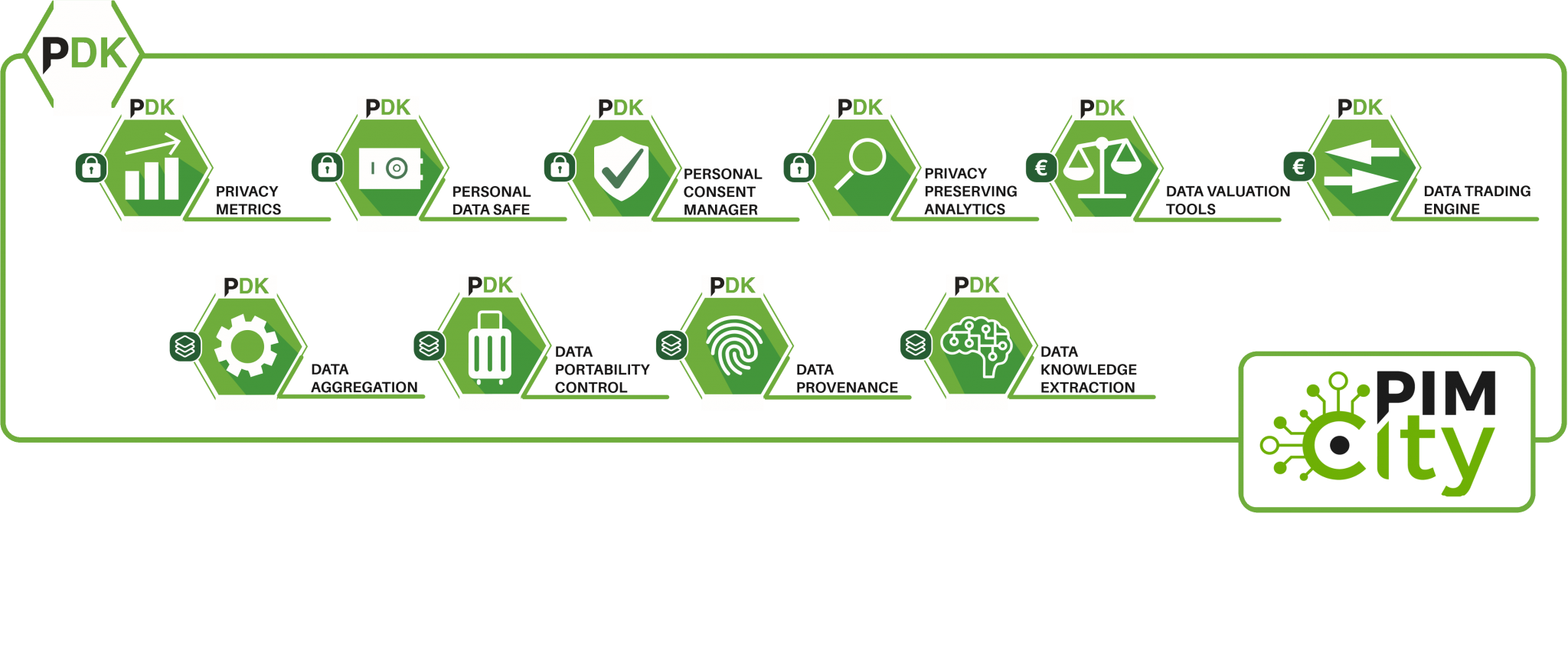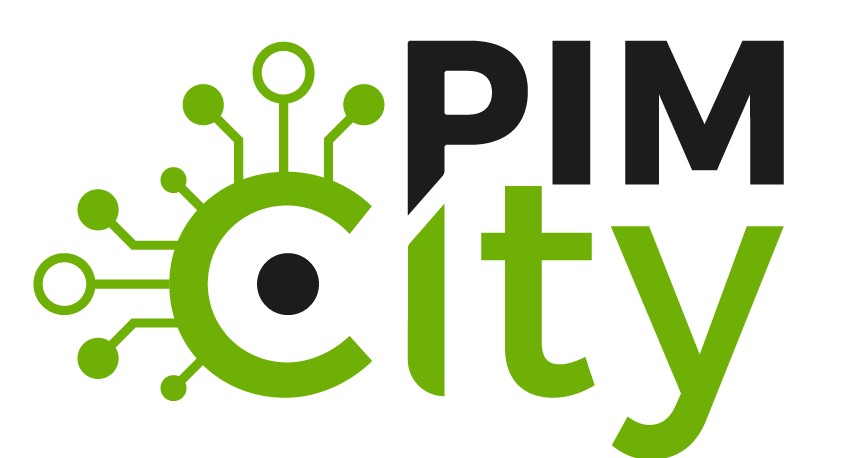PDK: the PIMS Development Kit

PDK components
With the PIMCity PIMS Development Kit (PDK), we offer basic and generic components that support the fundamental functionalities for Personal Information Management Systems (PIMS). These modules are released as a Software Development Kit (SDK), aiming to streamline the development and integration of PIMS. Our goal is to commoditize the complexity of creating PIMS to lower the barriers for companies to enter the web data market.
First Release of the PDK software
The source code of all modules is available online on GitLab
They include functionalities that allow the users to take informed decisions about which information to share and with whom.
Fundamental for PIMS is the creation of a transparent, open and easily accessible data market. We identify two fundamental components and functionalities for this.
DVTMP
The Data Valuation Tools from the market perspective (DVTMP) module leverages some of the most popular existing online advertising platforms to estimate the value the audience
DVTUP
The Data Valuation Tools from the user perspective (DVTUP) provides estimated valuations of end-users' data for the bulk dataset they are selling through the marketplace
Data needs to be exported, imported and exchanged using standard mechanism, with proper metadata that let the system know the data source, data value, and facilitate the data aggregation from heterogenous sources.
The Data Knowledge Extraction (DKE) component offers the means to extract knowledge from the raw data implementing machine learning and big data solutions. One of the biggest challenges here is the creation of value out of the raw data. When dealing with personal data, this must be coupled with privacy preserving approaches, so that only the necessary data are disclosed, and the data owner keeps the control on them. The DKE consists of machine learning approaches to aggregate data, abstract models to predict future data (e.g., predict user’s interests in recommendation systems), fuse data coming from different sources to derive generic suggestions (e.g., to support decision by users, providing suggestions based on decisions taken by users with similar interests).
The purpose of the Data Portability and Control (DPC) tool is to allow individual users to migrate their data to new platforms, in a privacy-preserving fashion. More specifically, it provides methods for extracting data from one PIMS (e.g., Bank data through the TrueLayer API), process it by filtering out sensitive information or user-inputted data (e.g., remove login credentials or debit card numbers), and outport it into other PDK module, a new PIMS (e.g., EasyPIMS) or an exported file in a common data interchange format, e.g., JSON.
The Data Provenance module OpenAPI allows developers to insert watermarks of ownership in the datasets they share in the marketplace. In general, this component is used internally by the PDK and developers that are in need of controlling data ownership even after a dataset has left the platform. This is done by embedding difficult to remove watermarks into the datasets.
